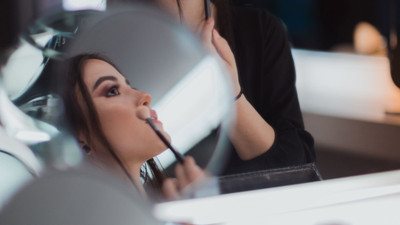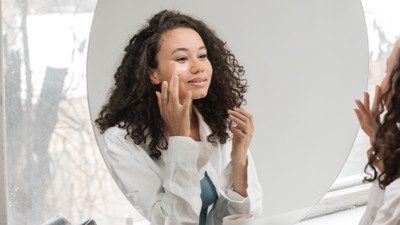Luxury designer clothing may damage your savings, but it could never damage our health, right? On the contrary, a new luxury designer handbag or a designer outfit makes us very happy. That is not always the case though; luxury designer clothing can actually damage your health if you suffer from the Fashion Imposter Syndrome.
Research on the Fashion Imposter Syndrome
A study from Harvard University and Boston College shows that luxury consumption does not always positively affect your mental health. On one hand, it can provide status benefits, but buying luxury designer items can give a non-authentic feeling on the other hand. This feeling gives consumers less confidence which leads to showing less confident behaviour.
The Fashion Imposter Syndrome creates feelings of inauthenticity caused by luxury consumption, because customers look at expensive products as a privilege. With people who think they have the right to luxury items and for people who usually don’t have that, feelings of the Fashion Imposter Syndrome are less present.
Who suffers from the Fashion Imposter Syndrome?
Fashion Imposter Syndrome, also abbreviated to FIS, may seem something far away to you, scientific research has shown that no less than 2/3 of the candidates suffer from this condition. The participants admitted that in the end, luxury purchases, only to find out how ‘luxury’ they really were, gave them the feeling that they were not worth it.
However, this doesn’t mean that every luxury purchase leads to the Fashion Imposter Syndrome. If you always wear a business suit and decide on buying a Dolce & Gabbana suit, you don’t automatically develop FIS. It’s another story when you daily wear your joggers and decide on purchasing this beautiful Isabel Marant dress for a special occasion. Chances are this will feel like too much, and the dress is not authentic to your lifestyle. That will inevitably lead to the Fashion Imposter Syndrome.
Prevent the Fashion Imposter Syndrome
Like your nan used to say: ‘better be safe than sorry’. That also applies to the Fashion Imposter Syndrome. Since an apple a day won’t keep this syndrome away, it’s clever to shop wisely. Just follow these tips to reduce the risk of developing the Fashion Imposter Syndrome.
- Don’t wear luxury clothing if this doesn’t suit you. Choose what’s right for you.
- Never buy a designer item if you think this will make you fit into the crowd. Eventually, it won’t give you the feeling you were hoping to get.
- Brands actually don’t mean anything. All you have to do is look at the product itself. Buy a bag because you love it, not because it’s a designer bag.
- Keeping luxury products at home won’t help avoid FIS; even luxury makeup and skincare can stimulate this syndrome.
- Don’t buy luxury products because you’re sad, lonely or angry, etc. Once these emotions pass, the purchase won’t mean anything to you.
- Stick to your own style when buying a party outfit. Stay within your comfort zone if you want to cheer up your clothing.




